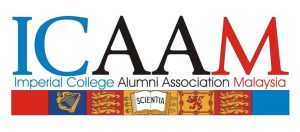Public Lecture: Prof. Molly Stevens, Imperial College London
SEGi University College cordially invites all IC alumni to a talk by Professor Molly Stevens, Professor of Biomedical Materials and Regenerative Medicine and the Research Director for Biomedical Materials at Imperial College London.
The talk, entitled ‘Bio-inspired Materials for Regenerative Medicine and Biosensing’, will address Professor Stevens research into the highly interdisciplinary field of tissue engineering and regenerative medicine.
Date : Monday, 17 May 2010
Time : 10.00am
Venue : Auditorium A (Right Wing), Level 2, SEGi University College
No. 9, Jalan Teknologi, Taman Sains Selangor, Kota Damansara PJU 5,
47810 Petaling Jaya, Selangor Darul Ehsan.
I look forward to your participation in this highly intellectual discourse by an eminent expert in the field of bio-inspired nanotechnology. Please find the abstract of the lecture and the CV of the speaker below after the agenda.
Programme Itinerary
10.00am : Arrival of Guests & Media
10.15am : Arrival of VIP Guests
10.30am : Welcome Address by Emeritus Prof. Dr. Muhamad Awang, Vice Chancellor, SEGi University College
10.40am : ‘Bio-inspired Materials for Regenerative Medicine and Biosensing’
A talk by Professor Molly Stevens (Professor of Biomedical Materials and Regenerative Medicine and the Research Director for Biomedical Materials at Imperial College London)
11:25am : Q&A Session
11.40am : Press Conference
11.50am : Light Refreshments
12.30pm : End of ceremony
Thank you.
Bio-inspired Materials for Regenerative Medicine and Biosensing
Professor Molly Stevens, Department of Materials and Institute for Biomedical Engineering, Imperial College London
Abstract
A disagreeable side effect of longer life-spans is the failure of one part of the body – the knees, for example – before the body as a whole is ready to surrender. The search for replacement body parts has fueled the highly interdisciplinary field of tissue engineering and regenerative medicine. This talk will provide an overview of our recent developments in bio-inspired nanomaterials for tissue regeneration and sensing. Bio-responsive nanomaterials are of growing importance with potential applications including drug delivery, diagnostics and tissue engineering. Conceptually novel approaches to real-time monitoring of enzyme action using modular peptide functionalized nanoparticles will be presented. The ability to control topography and chemistry at the nanoscale also offers exciting possibilities for stimulating growth of new tissue through the development of novel nanostructured scaffolds that mimic the nanostructure of the tissues in the body. Recent developments in this context will be discussed.
Biography
Molly Stevens is currently Professor of Biomedical Materials and Regenerative Medicine and the Research Director for Biomedical Materials at Imperial College. She joined Imperial in 2004 after a Postdoctoral training in the field of tissue engineering with Professor Robert Langer in the Chemical Engineering Department at MIT. In 2009 she was awarded the Jean Leray Award from the European Society for Biomaterials, in 2007 the prestigious Conference Science Medal from the Royal Pharmaceutical Society and in 2005 the Philip Leverhulme Prize for Engineering. She has also recently been recognised by the TR100, a compilation of the top innovators, under the age of 35, who are transforming technology – and the world with their work. Her previous awards include the Ronald Belcher Memorial Lecture Award from the Royal Society of Chemistry (2000) and both the Janssen Prize and the UpJohn Prize for academic excellence and research. Research in regenerative medicine within her group includes the directed differentiation of stem cells, the design of novel bioactive scaffolds and new approaches towards tissue regeneration. She has developed novel approaches to tissue engineering that are likely to prove very powerful in the engineering of large quantities of human mature bone for autologous transplantation as well as other vital organs such as liver and pancreas, which have proven elusive with other approaches. This has led to moves to commercialise the technology (she is the co-founder of RepRegen and InTiGen) and set-up a clinical trial for bone regeneration in humans. In 2009 she awarded the ACES Academic Entrepreneur pan-European Amgen Life Sciences Award in recognition of her tremendous work in transforming outstanding science into innovative medical products. In the field of nanotechnology the group has current research efforts in exploiting specific biomolecular recognition and self-assembly mechanisms to create new dynamic nano-materials, biosensors and drug delivery systems.


Write a Comment